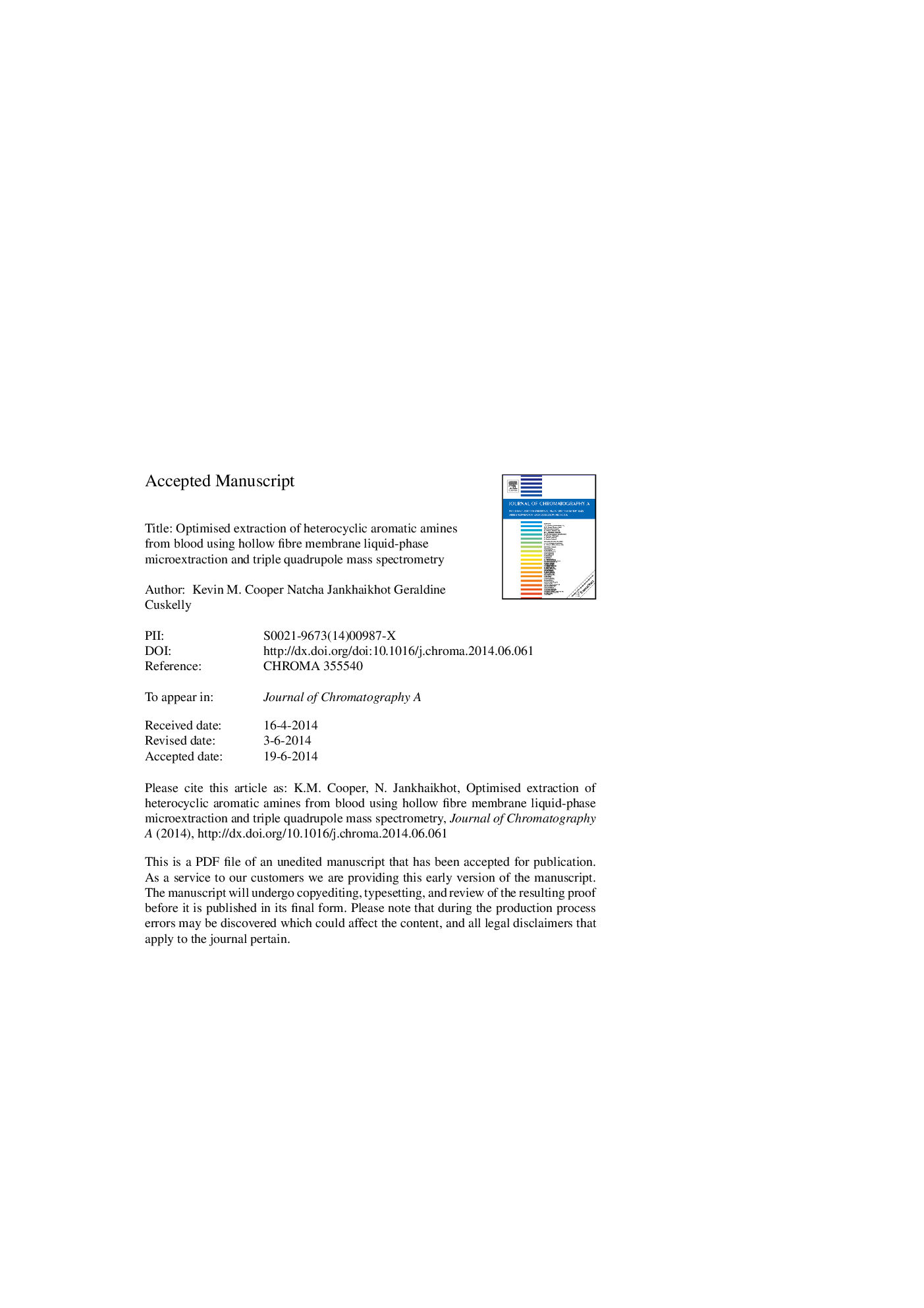| Article ID | Journal | Published Year | Pages | File Type |
|---|---|---|---|---|
| 7612635 | Journal of Chromatography A | 2014 | 29 Pages |
Abstract
Heterocyclic aromatic amines (HCA) are carcinogenic mutagens formed during cooking of proteinaceous foods, particularly meat. To assist in the ongoing search for biomarkers of HCA exposure in blood, a method is described for the extraction from human plasma of the most abundant HCAs: 2-amino-1-methyl-6-phenylimidazo(4,5-b)pyridine (PhIP), 2-amino-3,8-dimethylimidazo[4,5-f]quinoxaline (MeIQx) and 2-amino-3,4,8-trimethylimidazo[4,5-f]quinoxaline (4,8-DiMeIQx) (and its isomer 7,8-DiMeIQx), using hollow fibre membrane liquid-phase microextraction. This technique employs 2.5Â cm lengths of porous polypropylene fibres impregnated with organic solvent to facilitate simultaneous extraction from an alkaline aqueous sample into a low volume acidic acceptor phase. This low cost protocol is extensively optimised for fibre length, extraction time, sample pH and volume. Detection is by UPLC-MS/MS using positive mode electrospray ionisation with a 3.4Â min runtime, with optimum peak shape, sensitivity and baseline separation being achieved at pH 9.5. To our knowledge this is the first description of HCA chromatography under alkaline conditions. Application of fixed ion ratio tolerances for confirmation of analyte identity is discussed. Assay precision is between 4.5 and 8.8% while lower limits of detection between 2 and 5Â pg/mL are below the concentrations postulated for acid-labile HCA-protein adducts in blood.
Related Topics
Physical Sciences and Engineering
Chemistry
Analytical Chemistry
Authors
Kevin M. Cooper, Natcha Jankhaikhot, Geraldine Cuskelly,
